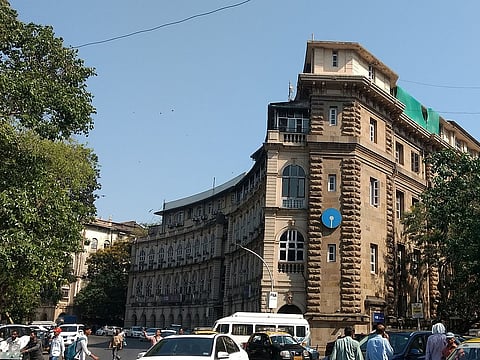

A day before its deadline to furnish details of Electoral Bonds (EBs) after they were struck down, the State Bank of India (SBI) told the Supreme Court on March 5 that it needs extra time till June 30, nearly four months in addition to the three weeks already granted to it, to compile the data.
SBI told the SC that it had kept only physical copies of the details of donors, which it will now have to match with the details of EBs stored digitally. Since 22,217 EBs were issued since April 12, 2019 – the date of an earlier interim SC judgement starting from which the court has now sought details – the SBI has claimed that this would be a time-consuming process needing months.
SBI has claimed that the purpose of not storing all the data digitally was “to ensure that it cannot be gathered easily to achieve the object of the scheme” – the highly criticised anonymity granted to donors. But banking and judicial experts as well as other critics are questioning why India’s largest public sector bank, which uses sophisticated software for all its operations and has spent lakhs on developing IT systems for EBs, is making such a claim and seeking so much time to compile the details. The timing of the move, right before the 2024 general election, has also raised questions about whether the bank is shielding the ruling Bharatiya Janata Party (BJP)’s “dubious dealings”. The BJP has been the biggest beneficiary of the scheme.
When the Supreme Court struck down the controversial electoral bonds (EBs) scheme calling it unconstitutional, the landmark verdict was celebrated by critics who had been arguing that the political funding instrument enabled corruption and backdoor lobbying. The apex court in its February 15 verdict had also asked the State Bank of India to submit detailed information including the donors who bought EBs and political parties which encashed them, including the dates and amounts, by March 6 to the Election Commission of India (ECI). The ECI was asked to publish these details by March 13, well in time for voters to better understand the sources of funding of various parties and make an informed decision ahead of the 2024 general election in April.
Read: SC has struck down electoral bonds, this war veteran played a role in it
Also read: Electoral bonds verdict: Four major points on which SC disagreed with the Union govt
CH Venkatachalam, general secretary of All India Bank Employees’ Association (AIBEA), said it was absurd for SBI to seek so much time. “This means the SBI is now trying to be an extension counter of the ruling party under pressure. A bank of that size and with that technology, wants three-four months to give one small piece of information? In this case, what type of quality of service will they give to the customers?”
Thomas Franco, former general secretary of the All India Bank Officers' Confederation (AIBOC), said that the SBI’s excuse of storing some of the data exclusively in physical form was laughable. He insisted that all EBs sold and encashed would also have a digital trail in the banking system, as the transactions themselves happen online and not in cash. “While issuing an EB, there is a transaction number. While paying it (to a political party), that transaction number is matched to know whether it is a genuine bond,” he said.
Transparency activist Commodore Lokesh Batra, who has played a key role in the fight against EBs, shared a Right to Information (RTI) response from SBI which showed that the bank had spent over Rs 60 lakh to develop IT systems for the EB scheme. “SBI deals with millions of transactions daily. How can it take four months to furnish data related to just around 44,000 information sets?” Venkatachalam asked.
While SBI has told the SC that all donor details have been stored separately in sealed envelopes at its Mumbai Main Branch, Thomas argued that this branch would already have the collated data, as annual audits would have been conducted. “SBI is definitely trying to cover up for the government, I am sure the Supreme Court will not accept this, and it must take action against the Chairman of SBI,” he said, adding that the move also dented the bank’s image and faith among customers. “It is very clear that the extension asked is to coincide with the ending of the elections,” Thomas said.
Read: TNM-NL Investigation: 30 firms facing ED, IT probe donated Rs 335 cr to BJP
The EB scheme was first launched in March 2018, and since then, the sale of bonds happened in phases of windows of seven to 10 days each, about four to six times a year. After eight phases of EB sales, the SC on April 12, 2019, refused to stall the scheme but had sought relevant details from political parties in a sealed cover to the court by May 30. The amount of EBs sold saw an all-time spike around this time during phase 9 (April 1 to 20, 2019), just ahead of the 2019 general election.
Former SC judge Justice Deepak Gupta, who was part of the SC bench which pronounced the April 2019 verdict, said in an interview with The Wire that the court had also told the SBI back then to maintain records of relevant details, which makes the ongoing delay unacceptable.
With inputs from Shabbir Ahmed
Watch: Electoral Bonds case: State Bank of India excuses are laughable - Thomas Franco